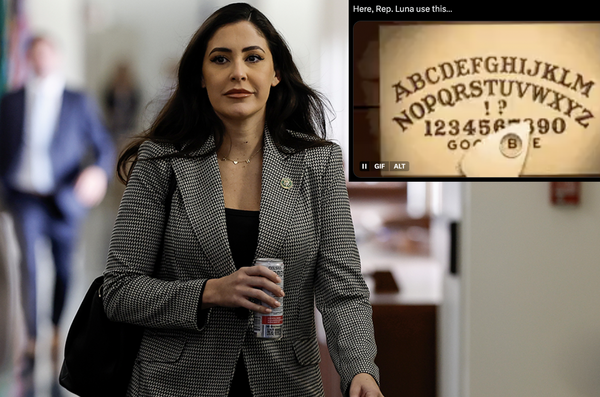
Tara Costigan's horrific murder sent shockwaves throughout the world. They rippled and ebbed their way into a Melbourne tram carriage, where author Heidi Lemon stood, rattled - slightly swinging on a handgrip.
At Lemon's first glimpse of the newspaper image of the blonde, blue-eyed woman fatally struck with an axe by her ex-partner in February 2015, Tara's story became rooted in her heart.
There were nine months between them but beyond that, their stories intersected; like Tara, Lemon experienced verbal abuse in a previous relationship.
Lemon sits before me now, her own blue eyes piercing as she recounts how she became more intimate with the grief of Tara's family than she ever thought possible.

"I wouldn't have had the temerity to approach them by myself and say, 'Can I write a book about your Tara?' I couldn't have done it," she says.
"[But] I gave it everything I've got, and then some - I genuinely went beyond my limits for this in terms of just about everything."
It's close to four years since Lemon, garnering all her tenacity, set out to tell Tara Costigan's story - and do it justice.
"It isn't possible to know someone you never met, but it's certainly possible to love them," she says.
"I feel that for Tara."
'Such is the universe of a single life'
Lemon met Michael Costigan, Tara's uncle, in late 2016. The pair were introduced by the author's sister, who is an expert on sexual harassment.
"It was shortly after the disputed facts hearing had wound up and that's when we met," Lemon says.
Michael broached the idea of Lemon writing a book about Tara's life, and the University of Canberra graduate was honoured. It became her all-encompassing purpose to transform Tara from "ink on paper" into somebody tangible and real.
Lemon's book, The First Time He Hit Her: The shocking true story of the murder of Tara Costigan, the woman next door, comes out on Tuesday.
"When you go into ... the less polished version of somebody, that's when you believe the story," Lemon says.
"You just get a clearer sense, for a moment even, of somebody who breathed, yawned and scratched their nose."
Lemon pored over photos and videos that were on Tara's phone when she died.

It became a disquieting portal into the 28-year-old's life: Tara's two sons on pushbikes and boogie boards, a nursery strung with rainbow lights, (her killer) Marcus Rappel cupping the side of her neck, her baby girl sleeping (the last photo she ever took).
Lemon caught the train from Melbourne to Canberra whenever she could to interview Tara's loved ones. Between their grief, they told stories of Tara standing inside her grandmother Margaret Costigan's pantry, stuffing chocolates into her mouth before her sons could see.
Tara was a mischief-maker, "the biggest bogan out" according to her best friend Sam, and so much more than the "saint" the media made her out to be.
Lemon says that after a while, it became more and more apparent that she couldn't capture even a tenth of Tara's essence with words - "she was a universe" - but out of love for Tara and her family, she worked tirelessly to try.
"The pressure was enormous that I put on myself," Lemon says.
"I wanted so bad to do her justice and the thought of her children one day maybe reading it - good Lord."
Pitching Tara

Lemon says in the book: "What a small part of Tara's life was her death. How unfair that it should overshadow the days and years and hours of life."
It's for that reason The First Time He Hit Her is essentially an ode to Tara; a snapshot of her being, as relayed through the eyes of her loved ones. But the man who ended her life has to have some part in it.
For that, Lemon sits you in the courtroom with the Costigans. Having gotten to know them, you can hear their hearts beat; their guts plunge as they're told Rappel said, "I wanted to hurt the bitch" and "I'm sure many people have been killed because of [apprehended violence orders]".
"There were moments where I was thinking, 'If I were there, if it was my sister, what the hell [would I have done]?'," Lemon says.
"I don't think I could have controlled myself half the time. I think I would have exploded."
You can feel Lemon's panic as she locks eyes with Rappel at his sentencing; see her dreadful fascination as the cogs of the justice system turn.
"I just couldn't stop looking at his hands, knowing," she says.
"You've spent pretty much every minute immersed in this case, and suddenly he's just looking at you."
But her fascination with Rappel never surpassed her fascination with Tara.
Tara was one of 80 women murdered in Australia in 2015: a time when the country was waking up to the domestic violence crisis (Rosie Batty's book A Mother's Story was released in September that year).
Lemon pitched The First Time He Hit Her in the context of dozens of similar books having already come out. One publisher knocked it back (she suspects because there are "so many of these stories in the news about murdered women"), but it struck a chord with Hachette's Sophie Hamley.
Before Hamley read The First Time He Hit Her, she read Jess Hill's See What You Made Me Do. The former had an important point of difference.
One in four
Lemon says the book's title is designed to surprise readers.
It elicits the ingrained assumption that intimate partner homicide has to be the culmination of long-standing physical abuse; otherwise, it's an inexplicable, unforeseeable horror - an out-of-the-blue occurrence.
As Lemon found out, that's far from the truth.
"I thought I was pretty informed on a lot of these sorts of relationships, but I really didn't have a clue until I started really digging," Lemon says.
The day before Tara's murder, she lodged a domestic violence order against Rappel, but assured her uncle she was at no risk of physical harm because he'd never hit her.
A 2018 study showed that of 105 men who killed their female partners, nearly a quarter had no reported or anecdotal history of physical violence. Of the murderers' victims, 80 per cent were subjected to emotional and/or psychological abuse.
So, while "prophecies are hard to catch" - as Lemon says in the book - Tara was at inherent risk of harm while in a verbally abusive relationship with Rappel.
Lemon was also at risk while in a relationship marred by verbal abuse. Her ex-partner often deployed identical insults to Rappel: bitch, slut.
"The easiest thing you can do with the English language is flay somebody alive with it and that's what cowards will jump to in my opinion," she says.
The risk for Tara was heightened by "red flags": her recent separation with Rappel, their dispute about his contact with their newborn daughter, his drug use, his aggressive response to a domestic violence order put on him by a previous partner, and his depression.
But, with no history of physical violence, nor knowledge of the connection between intimate partner homicide and verbal abuse, anyone would be hard-pressed to take the threat too seriously.
Lemon wonders, had she and Tara known the statistics, how their mindsets might have changed during their relationships. At points, they both clung to hope.
But, as ACT Director of Public Prosecutions Shane Drumgold says in the book, the real horror of Tara's story is that she did everything she could have done to save her life.
"And it wasn't enough," he says.
"The entire combined resources and a young girl doing everything right was not enough to save her."
The 'male violence crisis'
The day before Tara applied for a temporary DVO against Rappel, she did her utmost to tranquilise his predictably scathing response.
She wrote to him and explained it didn't mean he couldn't see his week-old daughter, but "it will mean when you see her it will be in a controlled environment".
"Once you get help, I will be happy to lift it," she said.
"I have not done anything to deserve what you are doing to myself and our daughter."
Tara went so far as to check whether the order would affect Rappel's good behaviour bond; "as much an indication of her level of caution as it is her soft heart," Lemon says.
She had her brother Derrick Filby over to her house two days later, on February 28, 2015, to suppress her nervousness at Rappel being served the order the same day.
Rappel bought an axe at Bunnings in Tuggeranong about 3.30pm on February 28. He drove past Tara's house 13 times before he parked in her driveway about 4.30pm.
In The First Time He Hit Her, Tara's uncle Chris Costigan says written court orders and the law are only powerful against people who are law-abiding.
"Anyone who can do what [Rappel] did obviously couldn't care less about a piece of paper," he says. "In fact, it incited him."
But the law can be made better to help those at risk.
While Tara was simply referred to the ACT Magistrates Court when she asked about getting an interim order, current victims of family violence are assisted by the Family Violence Coordination Unit when they make their applications.
The unit was launched in October 2015, eight months after Tara's death.
Three years after Tara's murder, a coroner also recommended that protection order applicants be told when an order is served, because of the heightened potential for violence.
In the book, Drumgold says the reality is we have a "male violence crisis". He says we need a cultural change beyond placards and protests to deal with it, and it has to be backed by a combined community effort.
"What confuses me is, we teach young men to work with wood and metal, to read and write - why don't we teach them not to interact with violence?" he says.
"Males are not going to fix it, females are not going to fix it, politicians are not going to fix it - at some point, the community has to come together and address it from preschool up."
Lemon says her hope for The First Time He Hit Her is two-fold. She wants people to gain an insight into who Tara was ("the woman behind the headlines"), but also to start to learn more about the largely under-explored relationship between verbal abuse and intimate partner homicide.
"If one woman reads this book and recognises that she might be in danger and takes steps to bring herself out of danger, then I think it will have done valuable work," she says.
- The First Time He Hit Her: The shocking true story of the murder of Tara Costigan, the woman next door, by Heidi Lemon. Hachette. $32.99.







